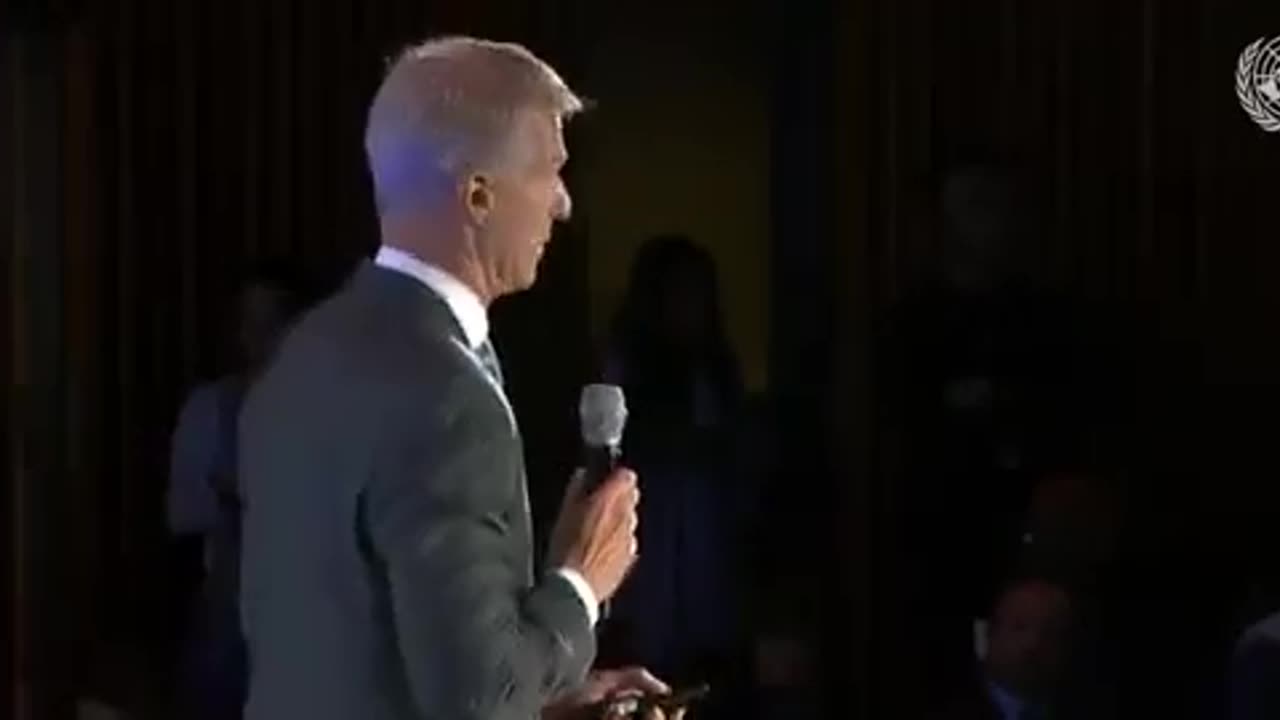Premium Only Content

Phones Should be Cheaper for the Remaining 2.6 billion People to be Connected, then Digital ID
The UN Summit of the Future's Action Day served as a rallying cry for globalists to push their vision of a dystopian digital future, where individual freedoms are sacrificed for the sake of a centralized, controlling system. To achieve this goal by 2030, the speakers highlighted several key steps that need to be taken.
First, they emphasized the need for universal access to electricity, without which people cannot access the internet or use devices, and AI data centers cannot function. Microsoft President Brad Smith lamented the 'electricity divide' between the global south and the rest of the world, citing that 43% of Africans lack access to electricity.
Next, they stressed the importance of internet connectivity for all, as a digital control grid cannot be built without universal internet access. This would enable the installation of Digital Public Infrastructure (DPI), which includes digital IDs, fast payment systems like programmable digital currencies, and massive data sharing.
GSMA Director General Mats Granryd highlighted that 2.6 billion people remain unconnected to the internet, primarily due to handset affordability. 'These 2.6 billion people, the vast majority — 95+ percent live beneath a mobile broadband coverage,' said Granryd. 'We don’t need more stuff, we don’t need more base stations, we don’t need anything in the sky either — it is just there to use, but they can’t use it.'
Granryd's solution is to make mobile handsets more affordable, with around $20 being the “sweet spot.” With a $20 phone and mobile coverage, 2.6 billion people can join the “digital economy,” or digital control grid, depending on how you look at it. This would enable the UN's vision of a digital future, where everyone is connected and controlled.
Finally, they implied that any dissenting voices must be silenced, labeling opposing views as 'disinformation' and 'hate speech'. This would ensure that only the UN's narratives are allowed to prevail, paving the way for a totalitarian digital regime.
It's chilling to see how these globalists are pushing for a 'digital gulag', where people are trapped in a web of surveillance and control, with no escape from the all-seeing eye of the UN's digital infrastructure.
-
 31:05
31:05
The Why Files
2 days agoPeru's Most Terrifying Mystery | The Face Peelers
20.1K41 -
 1:32
1:32
Gaming on Rumble
10 hours agoWhat is the Rumble Creator Program?!?! | Lvl UP
21.9K4 -
 DVR
DVR
Flyover Conservatives
22 hours ago9/11 on Steroids: What’s Coming This Fall? - Bo Polny | FOC Show
16.5K1 -
 1:01:28
1:01:28
Precision Rifle Network
8 hours agoS4E27 Guns & Grub - Let's Talk About Gas Guns
5.65K1 -
 59:29
59:29
The Charlie Kirk Show
3 hours agoTHOUGHTCRIME Ep. 96 — The Great Flag Burning Debate
42.1K30 -
 57:56
57:56
The Mel K Show
3 hours agoMel K & General Mike Flynn | Betrayal of a Nation: Soros’ NATO World Order | 8-28-25
26.3K23 -
 2:13:31
2:13:31
Joker Effect
2 hours agoInterviewing BEN JAMMINS! A personality with over 1 BILLION gif views. Let's give him a warm welcome
13.2K -
 11:37
11:37
Robbi On The Record
9 hours agoThe Devil is in the Branding..
14.5K8 -
 1:26:44
1:26:44
Savanah Hernandez
4 hours agoWhy Gen-Z Is So Radicalized Against Immigration
10.8K5 -
 2:36:19
2:36:19
megimu32
3 hours agoOTS: From A-List to MIA! 90s & 2000s Stars Who Vanished
8.85K3